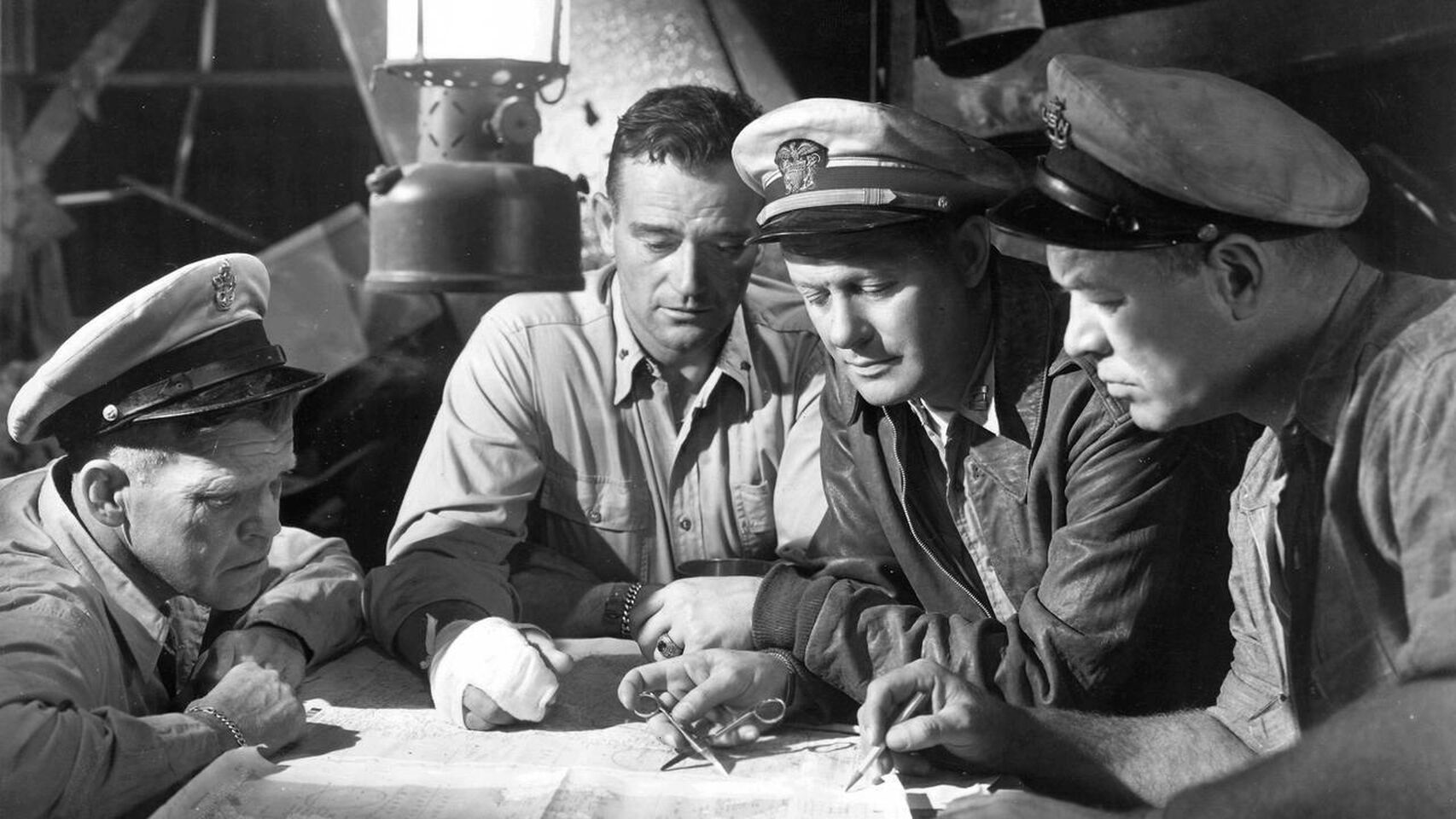Honor in Defeat
John Ford always seemed to pull for the little guy. And if he wasn’t pulling for the little guy, he was pulling for individuals who take setbacks with a stoic sense of honor and common decency, as well as a sense of humor and self-deprecation. The heroism and unselfishness of Dr. Mudd despite being wrongly accused in The Prisoner of Shark Island (1936), the sailors’ good will and comradeship despite their hard lives in The Long Voyage Home (1940), the optimism and practical wisdom of Mayor Skeffington despite the darkening political landscape in The Last Hurrah (1958), the gallantry and idealism of the confederate army despite their inevitable defeat in The Horse Soldiers (1959), and the dignity and patience of the Indians despite their gross mistreatment in Cheyenne Autumn (1964) — Ford often views human nature through the prism of the noble failure.
In a 1955 interview, writer Jean Mitry asked Ford if he deliberately chose stories that thrust a small group of people by chance into dramatic or tragic circumstances. Ford replied:
On purpose? It seems so to me. It enables me to make individuals aware of each other by bringing them face to face with something bigger than themselves. The situation, the tragic moment, forces men to reveal themselves, and to become aware of what they truly are. The device allows me to find the exceptional in the commonplace. I also like to find the humor in the midst of tragedy, for tragedy is never wholly tragic.
Another example of honor in defeat is Ford’s They Were Expendable (1945). It’s based on the true story of John Bulkeley, who helped develop the PT boat for naval combat in World War II. The backdrop is the attack on Pearl Harbor and the bravery of the American forces in what was their worst military defeat up until that time. Robert Montgomery plays Lt. John Brickley (changed from “Bulkeley” for the film), John Wayne plays Lt. Rusty Ryan (Brickley’s friend), and Donna Reed plays Lt. Sandy Davis (the love interest). As in all of Ford’s films, the characters are never lost in the sweep of history. The characterizations are strengthened through the accumulation of personal details — a subtle gesture, a casual look, or an act of kindness that forges a bond between two characters.
They Were Expendable is one of my favorite World War II films. Another is Air Force (1943), directed by Howard Hawks. Apart from having a similar plot (the attempt to recover militarily after an initial defeat in the Pacific), both films are top-notch character studies. They’re also seeped in the feel-good (even propagandistic) wartime ethos that urges us to set aside our differences and join together to overcome a common enemy.
Here’s an interesting bit of trivia. Ward Bond was injured in an automobile accident just before production began on this film. To explain the crutches Bond needed to move around, Ford added a scene in which Bond’s character is wounded.
They Were Expendable
(1945; directed by John Ford)
Warner Archive Collection (Blu-ray)
Warner Home Video (DVD)
Saturday, May 25 at 9:30 a.m. eastern on Turner Classic Movies
Reviews